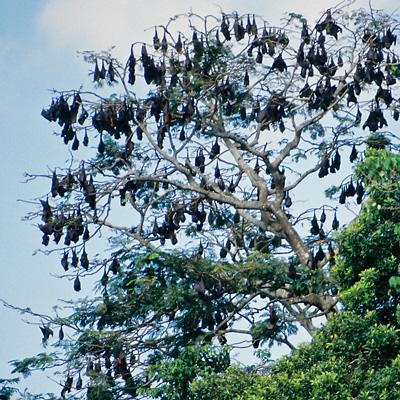My alternate titles for this post are, “Oh, Really??” and “Darwin’s Theory of Natural Selection in Action”.
These photos are from the thermal springs in Wai-O-Tapu Thermal Wonderland, Rotorua, New Zealand. All of New Zealand is earthquake-prone and Rotorua steams and belches and burbles from the many, many underground geysers and hot springs. Rotorua is gloriously alive!
My first title, Don’t Attempt to Adjust that Dial, is because the colors are not normal. In fact, thanks to the high concentrations of various chemical and metallic elements, the colors of the pools are downright creepy. (According to their website, Wai-O-Tapu Thermal Wonderland is known as “One of the 20 Most Surreal Places in the World”.) https://www.waiotapu.co.nz/information/



The second title, “Oh Really??” is my sarcastic and astonished response that the park felt like they needed to post signs warning that the springs are damned hot:



Personally I thought the clouds of steam gave away the secret, but maybe that’s just me.
And the third alternate title “Darwin’s Theory of Natural Selection in Action” was my response when I spotted this sign:
 Apparently it isn’t enough to inform visitors that the waters are boiling hot. No: the park has to go further and admonish visitors NOT to climb over the waist-high fences and wade into the springs.
Apparently it isn’t enough to inform visitors that the waters are boiling hot. No: the park has to go further and admonish visitors NOT to climb over the waist-high fences and wade into the springs.
I say this proves beyond a doubt Darwin’s Theory of Natural Selection, aka the law about survival of the fittest/brightest/least stupid.
NOTES: © Jadi Campbell 2025. To see Uwe’s pics from our trips go to viewpics.de.
PS: The park is run by Te Arawa Group Holdings, a local Maori tribal business. In addition to these signs, their Health and Safety Page has these warnings: “There is NO SMOKING allowed within the attraction.” And this: “Thermal pools can be very hot (over 100⁰C or 210⁰F) or have toxic gases or fumes at the surface. Also, thermal pools can form a thin crust over the top of them that looks like a solid surface, but will break if a person stood on it. Thermal pools can be hidden under vegetation. Please refrain from trying to touch any water or go the edge of pools as you can cause yourself serious harm.” And this. “Steam can be attractive to visitors, for your own safety, please refrain from sitting on, standing over, touching or placing any body part over steam vents or crevasses. These can be very hot and cause serious harm to your skin.” And this… “Being an active geothermal area with uneven terrain, sturdy footwear is recommended. Jandals, sandals, flip-flops or high heeled shoes are not suitable.” https://www.waiotapu.co.nz/health–safety/
Darwin’s turning in his grave!
I am a Best American Essays-nominated writer. My books are Broken In: A Novel in Stories, Tsunami Cowboys, Grounded, The Trail Back Out, and The Taste of Your Name. Recent awards include F

Follow these links for Amazon.com or Amazon.de.






















 Yet another addition to my blog thread describing what to call groups of animals! … See how many you can guess. Answers listed at the bottom of the page.
Yet another addition to my blog thread describing what to call groups of animals! … See how many you can guess. Answers listed at the bottom of the page.

